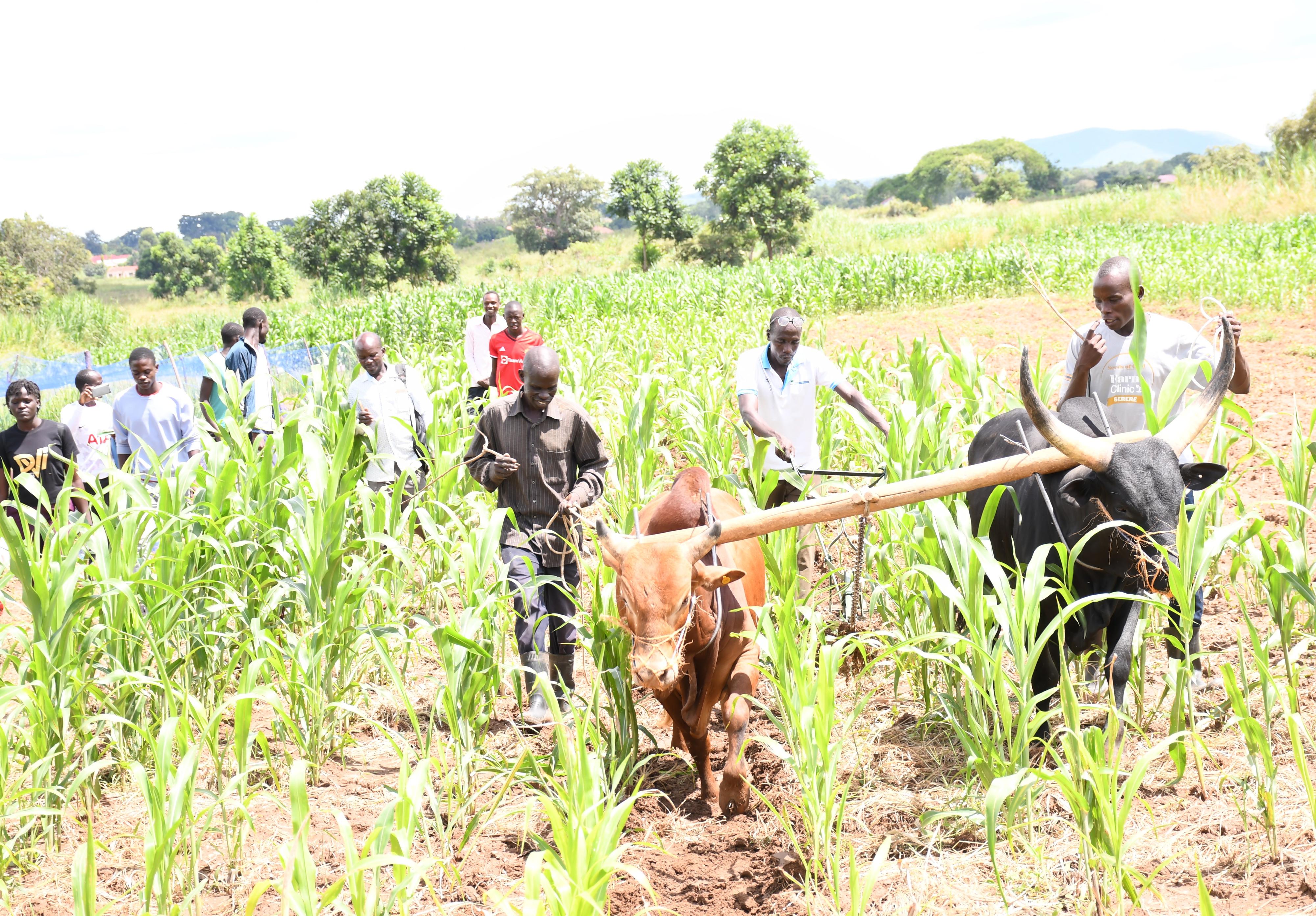Prime
Farmers’ memorable day out at farm clinic

What you need to know:
- Today: Seeds of Gold farm clinic
- Venue: National Semi-Arid Resources Research Institute (NaSARRI), Serere
- Time:8am to 5pm
- Sponsors: Bank of Uganda, Stanbic Bank, Jubilee General Insurance, Naro
- Enterprises: Cassava, sunflower, ground nuts, sorghum and animal traction
A 21-kilometre murram road from Soroti City snakes through Atiira Sub-county in Serere District, to the National Semi – Arid Resources Research Institute Serere (NaSARRI).
The facility, located some 1,000 metres off the Serere-Kumi highway, is a sorghum, cassava, groundnut and citrus fruit research station.
One drives through a tarmacked driveway once they enter the centre’s gate. It is here that Seeds of Gold held its 36th farm clinic last Saturday.
Lessons
The gates opened at 8am and farmers from various parts of the country flocked the centre armed with books, pens and questions ready to quench their thirst for agricultural information.
Ready to attend to them were dozens of agriculture experts. And various modern agricultural technologies were also on display, ranging from farm equipment and machinery, new seed varieties and fertilisers.
James Ochan, the principal technician at the sunflower section in NaSARRI, took farmers through best sunflower farming practices, from planting to harvesting and storage.
“Conducting a soil test is important. It enables one to know nutritional status of their farm and the kind of fertiliser ingredients one needs such as nitrogen, potassium and calcium,” advised the expert. Soil samples, should be extracted from at least three different parts of a farm.
“Dig between 0–30cm and collect the soil. Then put in a well-labelled envelop and bring to us or any other institution for analysis,” she said.
Anne Akiror, a fruit farmer in Atiira, asked how one can control mealybugs. She was afraid of losing fruits worth over Shs2m to the pest.
Julius Menya, a fruit expert, asked farmers to enhance farm hygiene and adopt preventive measures such as scouting of crops for pests to curb invasion. He promised to send extension officers to Anne’s farm for effective elimination of the pests.

Mr John Emanio, sorghum breeder at NaSARRI takes farmers through sorghum practices on Saturday. PHOTO/SIMON PETER EMWAMU
Cost of production
Farmers decried increased cost of production. Beatrice Asio, a groundnut grower in Soroti District, said she leased an acre this season but was unable to sow because of high production costs. Equally, water has become scarcer, making groundnut production much expensive, she added.
Fred Opolot said he planned to farm sunflower thanks to the clinic after burning her fingers growing tomatoes.
“I have changed my mind after meeting here a farmer doing indigenous crops. I am now certain that is the direction I should take,” stated the farmer.
For Fredrick Olupot, who grows avocado, mango and oranges, he was happy to have learnt about tangerine fruits, which he said he was going to farm.
“In such forums one learns new technologies in farming, innovations on production of food and cash crops, horticultural and extension services thus increasing production,” observed
Dr Musila cited climate change as one of the biggest challenges facing farmers as she asked them to embrace improved seed varieties as a mitigation measure.
“Though the ancient seeds are readily available, they are not high-yielding. Climate change is real, and with the erratic rains we receive, we need to migrate to the improved varieties, which are not only productive, but tolerant to drought, pests and diseases,” she explained.
Apart from Mwea, other rice producing zones in the country are Ahero, Bunyala and Tana Delta.
Kalro has released new varieties for upland and low lands (irrigated) ecologies, which include Nerica and Komboka. The expo was organised by Nation Media Group (NMG) in partnership with various actors. The sponsors of the event were CMC Motors (New Holland Tractors), CFAO Kenya (Case IH Tractors), STIHL, Pan Agric, Davis and Shirtliff and New Down Town Ltd
“The clinic is back and we are looking forward to farmers engaging with stakeholders in the industry, as they derive value from the engagements,” said Rose Wanjohi, the NMG’s Business Solutions Manager.




